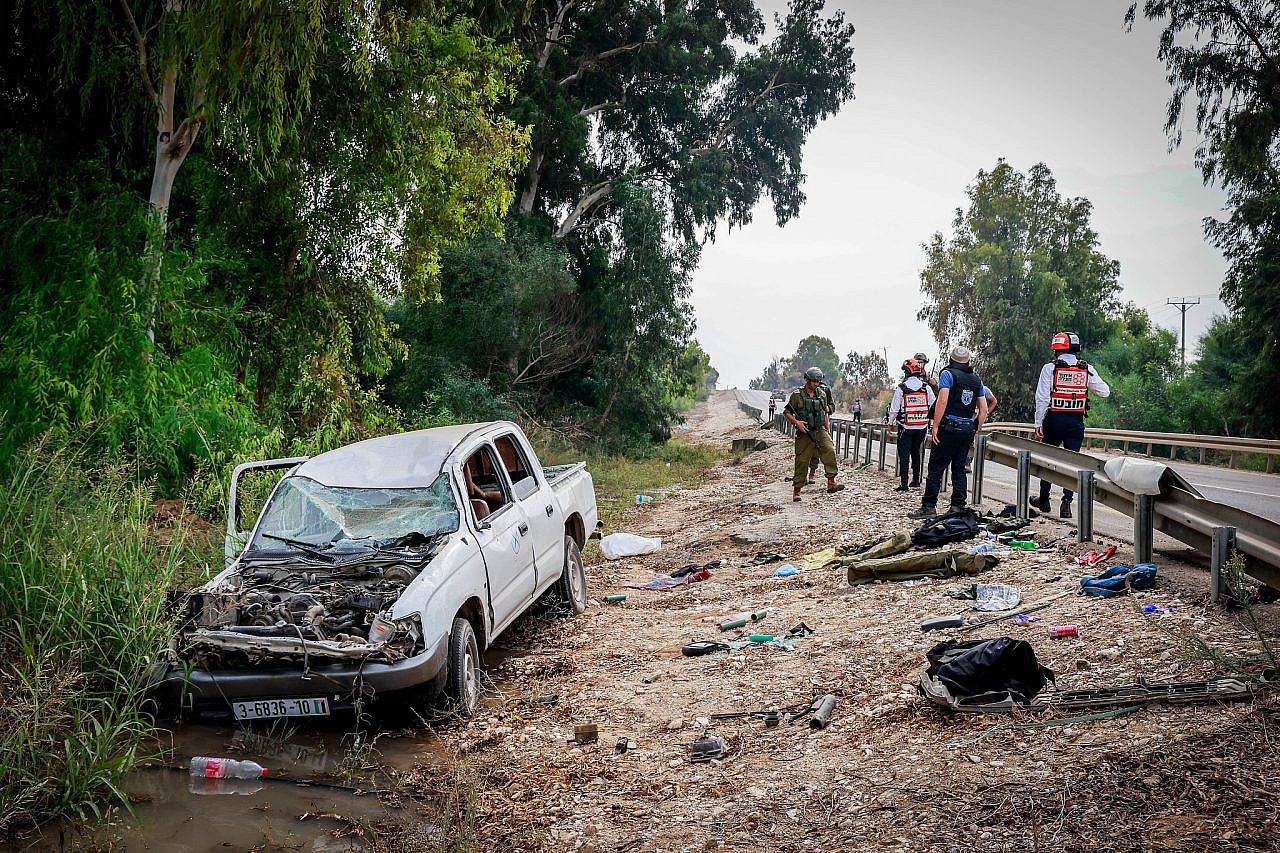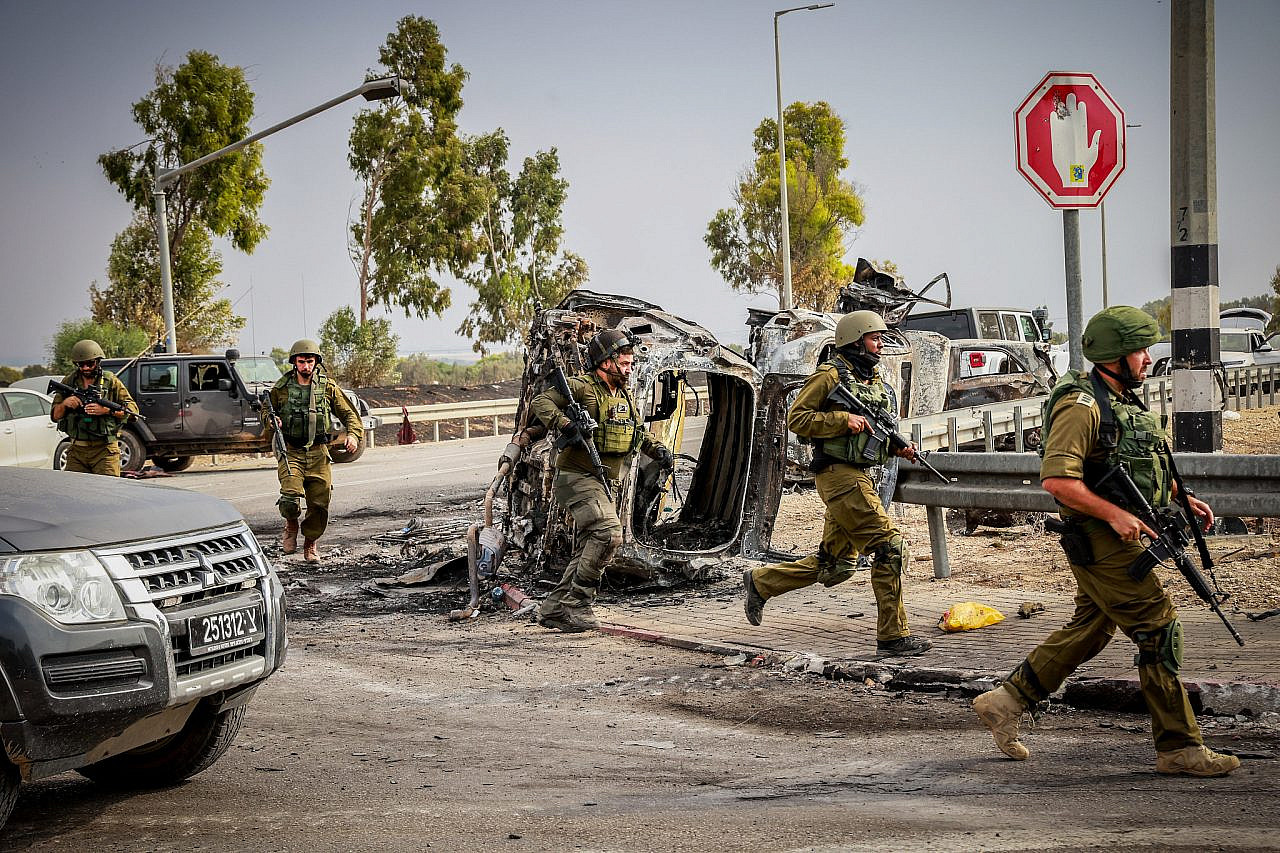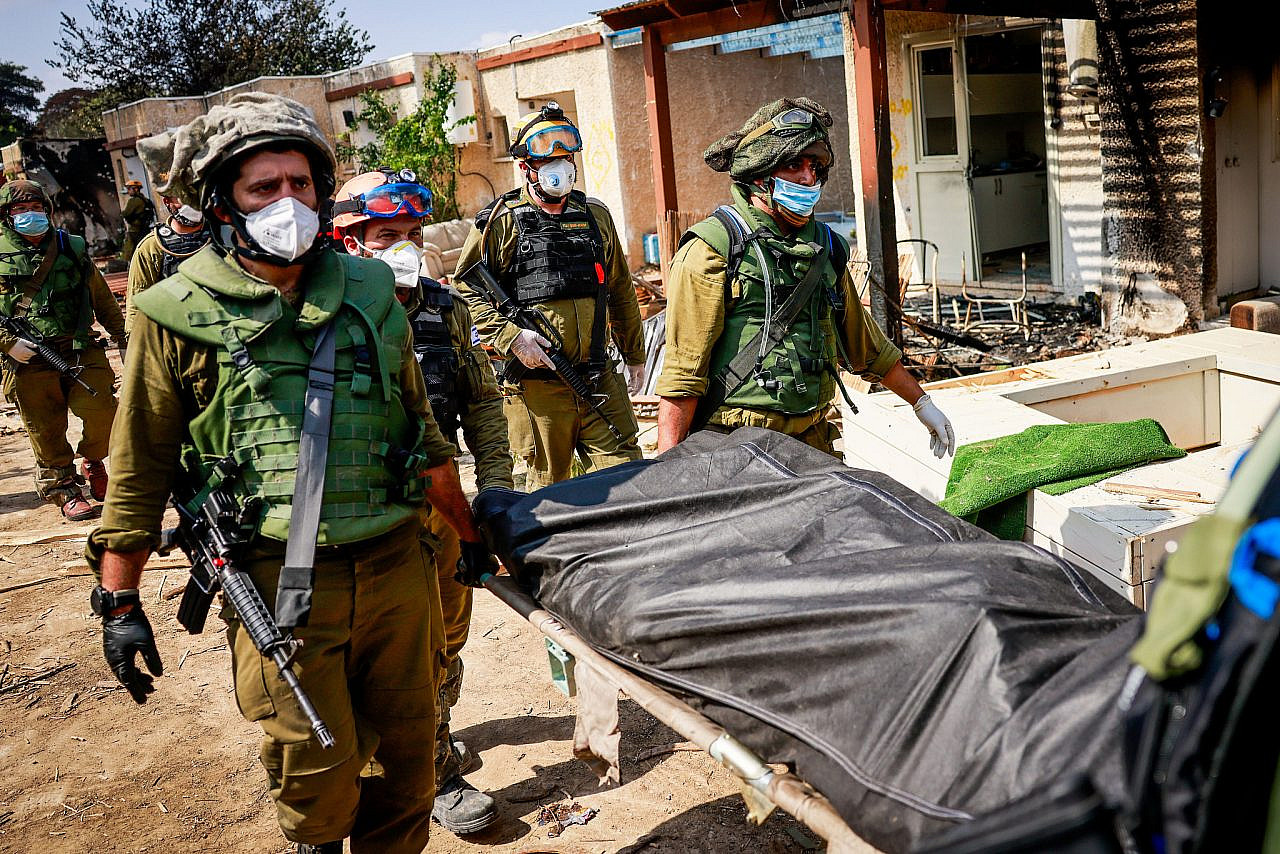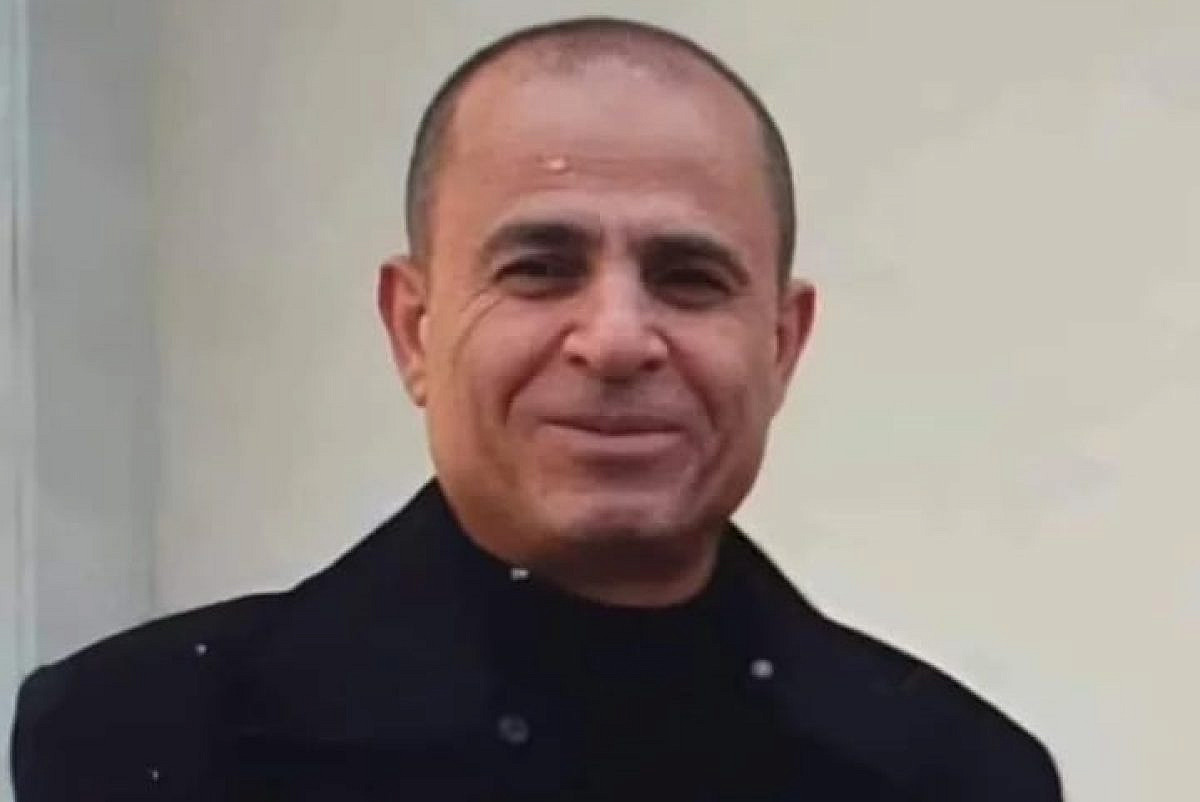Hashim al-Birawi was born in Beit Lahiya in the northern Gaza Strip, but spent much of his life in the nearby Israeli communities just a few miles from his home. For 40 years, beginning when he was still a teenager, he worked in the kibbutzim of Nir Am, Yad Mordechai, Nir Yitzhak, and Ruhama — first as a laborer and then a contractor, as well as in citrus, banana, and avocado orchards.
Al-Birawi was one of several thousands of Palestinians from the occupied territories who received permits to work inside Israel — sometimes to even work on land from which they or their ancestors were expelled during the Nakba. Issued by a bureaucratic system that serves as a central mechanism of control over Palestinians, such permits are a precarious but vital lifeline for many laborers unable to find work or economic prospects in the West Bank and Gaza Strip, due to the debilitating impact of the Israeli occupation. While the permit regime exposes many Palestinian workers to various forms of exploitation, it appears al-Birawi, at least on the interpersonal level, generally had a more positive experience. “They treated us like family there,” says Nabil, al-Birawi’s 54-year-old brother, of Hashim’s employers.
On the nightmarish morning of Oct. 7, al-Birawi started his day in the Bedouin city of Rahat, in the Naqab/Negev, where he would often stay overnight instead of returning home to Gaza when he was working at a kibbutz. Just before 7 a.m. the gray van that al-Birawi and six other Gazan workers were in, together with the driver, a Palestinian citizen of Israel, came under fire as it approached the Sa’ad intersection, 2.5 miles from the Gaza fence. Twenty minutes later, al-Birawi was dead.
Lior Golan, a farmer from Kibbutz Ruhama, was close to al-Birawi and knew his wife and kids. “I’ve worked with a lot of laborers but I never met a contractor like Hashim. He’s been here since the ’80s — one of the best people I know. Someone who always helped anyone in need. He made a point of getting to know each worker personally.”
That Saturday morning, Golan had awoken to the sound of rocket warning sirens, and the first thing he did was call to check on al-Birawi. “He told me: ‘I’m at the Sa’ad intersection. They shot me,’” Golan recalls. “‘I’m wounded, one of my workers is wounded,’ he said. I told him to run away through the fields but he said he couldn’t move. I called him again 10 minutes later and he said he was near Kibbutz Nir Am. While we were talking he was shot again and died.”

In that final conversation, Golan says al-Birawi told him that “a terrorist who parachuted in from the sky” had shot him. In security camera footage taken at the Sha’ar HaNegev intersection, four Palestinian gunmen can be seen next to and peering into the shot-up gray van.
The horrifying scene inside the van was captured in another video taken by an Israeli a few hours later, also at the Sha’ar HaNegev intersection. Al-Birawi is lying next to the driver’s seat, covered in blood. Next to him are three other Palestinian men from Beit Lahiya: Suliman al-Atar, Suheil al-Masri, and Ziyad Ghanam, all shot dead.
The driver, Sami al-Jarjawi, a Palestinian citizen of Israel who lived in Shaqib al-Salam/Segev Shalom, was also fatally shot. Two other men from Gaza had been in the van when it set out that morning but do not appear in any of the video footage. Perhaps they were sitting in the back seat and simply weren’t filmed. Perhaps they managed to escape.
A journalist for the Arabic edition of Israel’s i24News who passed by the location a few hours later reported that the inhabitants of the gray van were “Hamas gunmen,” pointing out that there were large water thermoses in the trunk — “equipment that they brought with them,” in the reporter’s words. It is not clear what his conclusion was based on, and Israeli farmers told +972 Magazine that this type of water thermos is what Palestinian laborers bring with them to work. It is also unclear whether first responders came around and put the men into body bags, or whether they marked them as terrorists or victims of the massacre.
That last point is particularly important to Nabil al-Birawi, Hashim’s younger brother, who wants to clear his brother’s name and give him the burial he deserves in Gaza. “I saw him dead in the video. I know my brother’s face,” he says, bursting into tears. “They said on the news that he’s a terrorist. How? Everyone knows him. Ask at any of the kibbutzim. We worked there for years and we opened up our hearts. Like family. I just want to bury him.”

‘I pray that somebody stops all this death’
Yahel Schiffman, a farmer from Kibbutz Yad Mordechai, says he knows Nabil and spoke to him that morning when the sirens started, telling him to run. “Nabil is a reliable man. What he told you is the truth,” Schiffman says.
In difficult days of mourning and war like these, he continues, he has mixed feelings about expressing empathy toward the other side. “On the one hand, it’s terribly sad. I know their entire family and I know how difficult they have it. On the other hand, I don’t have much room left for compassion.”
It wasn’t until the evening of Oct. 7 that Nabil found out his brother had been killed. That Saturday, he was on his way to work at another location nearby with 11 other Palestinian workers from Gaza and an Israeli driver, when, according to him, a white vehicle stopped in front of them and shot dozens of bullets. “I don’t know who was inside or who fired the shots,” he said.
The group spent the next 11 hours hiding from the gunmen in agricultural fields. Three of the Gazans were shot and bled out in the fields while they hid.

Ofer Lieberman, a farmer from Nir Am, arrived at the scene that evening and rescued Nabil and the others. “We asked Ofer to come save us,” Nabil says. “I was really scared that if soldiers saw us by themselves they would shoot us. Ofer came with the soldiers. They told us to put our hands up, brought us to the kibbutz, and gave us juice and cake. They took the wounded to a hospital.”
In the days since, Israeli authorities arrested over 3,000 Palestinians from Gaza who were working in Israel on Oct. 7 and held them in prisons in the occupied West Bank until late last week; they were reportedly tortured and abused while in detention. Hundreds, perhaps thousands of others are hiding out in Palestinian cities in the West Bank. It is not presently known whether Hamas gunmen killed other Palestinians from Gaza in the chaos of the attack that Saturday morning.
As a boy, Nabil says, he dropped out of school in Gaza in order to work in Israel with Hashim. “I pray that somebody stops all this death, the shooting, that they just sit and talk. I don’t want more blood. Not here, not there. Every death is difficult for me. My family just fled to Khan Younis [in southern Gaza] and they don’t have any water. On our side, on their side, all the dead, it pains my heart.”
Most read on +972
Golan, the Israeli farmer who was close to Hashim, says he has forged friendships with laborers from Gaza and it is clear to him that the majority of Palestinians in Gaza do not support Hamas. That said, he also believes the Israeli army should take this war all the way. “We can’t live like this anymore,” he said. “How can I bring my daughters to the kibbutz school again after the terrorists were there?” More than anything, however, he says the most difficult feeling is the sense of betrayal. That the State of Israel abandoned its citizens who live near Gaza.
Golan, who lost a number of loved ones in the attack, says, “I didn’t stop crying for three days. I cried for my family. I cried for my friends. And I cried for Hashim.”
Note: This article has been amended to include additional context on the Israeli occupation’s permit regime and the general conditions of Palestinian laborers inside Israel.
This article was first published in Hebrew on Local Call. Read it here.






